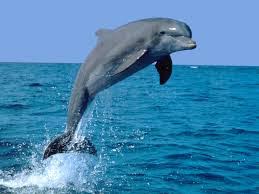- Home
- Editorial
- News
- Practice Guidelines
- Anesthesiology Guidelines
- Cancer Guidelines
- Cardiac Sciences Guidelines
- Critical Care Guidelines
- Dentistry Guidelines
- Dermatology Guidelines
- Diabetes and Endo Guidelines
- Diagnostics Guidelines
- ENT Guidelines
- Featured Practice Guidelines
- Gastroenterology Guidelines
- Geriatrics Guidelines
- Medicine Guidelines
- Nephrology Guidelines
- Neurosciences Guidelines
- Obs and Gynae Guidelines
- Ophthalmology Guidelines
- Orthopaedics Guidelines
- Paediatrics Guidelines
- Psychiatry Guidelines
- Pulmonology Guidelines
- Radiology Guidelines
- Surgery Guidelines
- Urology Guidelines
Dolphin genes could help treat kidney failure

New York : A new database of genes from the bottlenose dolphin may unveil clues to treat diseases such as stroke and kidney failure in humans, say scientists who have mapped all the proteins found in the marine mammal. Researchers have just finished creating a detailed, searchable index of all the proteins found in the bottlenose dolphin genome.
A genome is the complete set of genetic material present in an organism. The project is built on years of marine mammal research and aims to provide a new level of bioanalytical measurements. Comparing the proteins of humans and these other mammals is providing researchers with a wealth of new information about how the human body works.
"Dolphins and humans are very similar creatures," said Ben Neely from including those from National Institute of Standards and Technology, US. "As mammals, we share a number of proteins and our bodies function in many similar ways, even though we are terrestrial and dolphins live in the water all their lives," he said.
Studies have recently revealed that lesser-known proteins in the blood of marine mammals may be playing a big role in the dives by protecting bottlenose dolphins' kidneys and hearts from damage when blood flow and oxygen flow start and stop repeatedly during those underwater forays.
One such protein is known as vanin-1. Humans produce vanin-1, but in smaller amounts. Researchers are planning to gather more information on whether elevating levels of vanin-1 may offer protection to kidneys. "There's this gap in the knowledge about genes and the proteins they make. We are missing a huge piece of the puzzle in how these animals do what they do," said Mike Janech of Medical University of South Carolina in the US. "Genes carry the information of life, but proteins execute the functions."
Vanin-1 is just one example of how genomic information about this mammalian cousin might prove useful. There may be hundreds of other similar applications, including some related to the treatment of high blood pressure and diabetes, researchers said.

Disclaimer: This site is primarily intended for healthcare professionals. Any content/information on this website does not replace the advice of medical and/or health professionals and should not be construed as medical/diagnostic advice/endorsement or prescription. Use of this site is subject to our terms of use, privacy policy, advertisement policy. © 2020 Minerva Medical Treatment Pvt Ltd